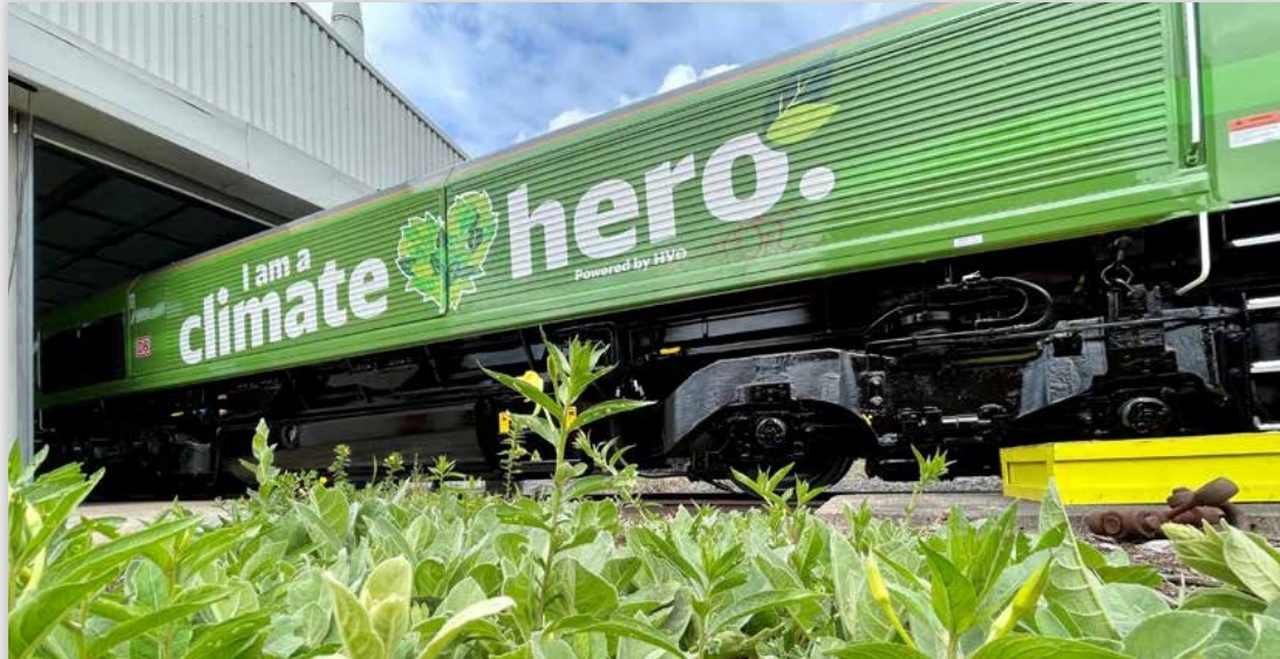Rail Partners has issued a report which says that freight operators will make investments to improve and further decarbonise rail freight if the government delivers the conditions to enable the market to grow.
The report outlines how, in partnership with government, operators can deliver economic and environmental benefits of freight by investing in trains, the workforce, and new technologies.

Titled Freight Britain: An engine for green growth, the report outlines the Department for Transport's commitment to grow rail freight by at least 75% by 2050, how that target can be achieved, and how to secure the benefits that rail freight brings to the economy and the environment.
Rail freight today contributes £2.45bn to the UK economy, with 90% of the benefits being outside London and the South-East, as a single train can remove up to 129 lorries from roads.
Besides reducing congestion, rail freight produces 76% less carbon per tonne compared to road, and if rail freight grew by 75% it would remove 12 million HGV movements from the roads every year.
However, the challenges facing rail include increased access charges for rail freight which have risen sharply since 2010, while the cost of fuel for road transport has been frozen since 2014.
Key points in the report
The report details five priority policy interventions to create the conditions for rail freight operating companies to invest and, in partnership with the government, grow the rail freight sector:
- Address the widening gap between road and rail costs to create a level playing field.
- Maintain and expand grant schemes to remove more lorries from roads and provide more support for the modal shift to rail by expanding incentives like the Mode Shift Revenue Support scheme and the Freight Facilities Grant.
- Offer long-term access to the rail network so that businesses have the confidence to invest in rail freight facilities and technology.
- Provide the necessary infrastructure to support growth in rail freight, create capacity for more freight services, and make clear commitments to new infrastructure.
- Deliver a reformed railway by creating a Strategic Freight Unit to ensure freight is adequately represented in any new arm's length body, which should have a statutory duty to promote rail freight, safeguard operators and ensure freight is sufficiently prioritised.
“Rail freight operators want to invest in better, greener trains and freight facilities, to do so they need government to work in partnership with them and create a favourable environment for growth. That means providing confidence around access to the network and investment in capacity, and commitments to support rail freight as a critical step towards wider environmental targets and net zero.
“Increasing rail freight services has the backing of all the main parties, so government should have the confidence to invest in tangible support, from targeted infrastructure investment to the right incentives to encourage customers to switch to rail, helping to decarbonise supply chains.”
Andy Bagnall, chief executive of Rail Partners
“In recent years, freight operating companies have invested in facilities, talent and rolling stock to prepare ourselves for the transition to net zero. Collectively, we as an industry are able to help the UK decarbonise its supply chains, and in doing so remove HGVs from our road network, which will benefit the wider country.
“With small interventions from government that provide long-term stability, further private sector investment can be unlocked that will drive the growth of rail freight across the country.”
John Smith, chief executive officer, GB Railfreight and chair of Rail Partners' Freight Council
Re. the post from Paul Hampson, who says “Knocking HS2 on the head will mean no chance of increasing rail freight by 75%.”
I TOTALLY disagree; knocking that vanity project white elephant money-pit on the head is essential to free up an enormous amount of capital and other resources to clear a shed-load of bottlenecks which currently hamper all rail services, AND to make access to freight and intermodal services easier, more efficient, and more cost effective.
I have been saying that it is more economic to ship freight by rail rather than road since the 1960s, when the idiot Beeching closed down lines and goods sheds and yards, British rails majority of road vehicles were 3 tonners and delivered locally with larger vehicles delivering to the country areas.
Very little heavy haulage lorries on the road or white vans meant it was better for the environment
Knocking HS2 on the head will mean no chance of increasing rail freight by 75%.